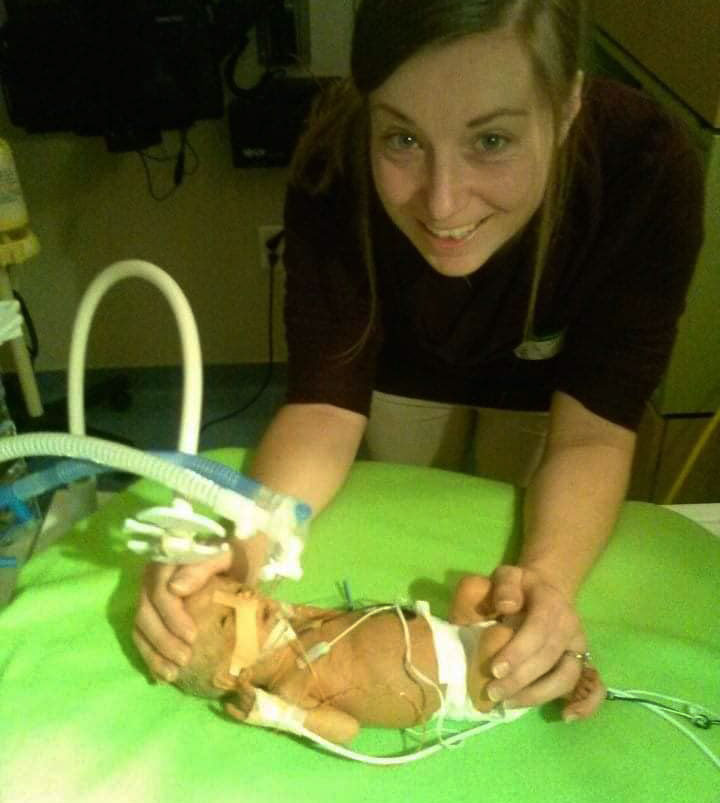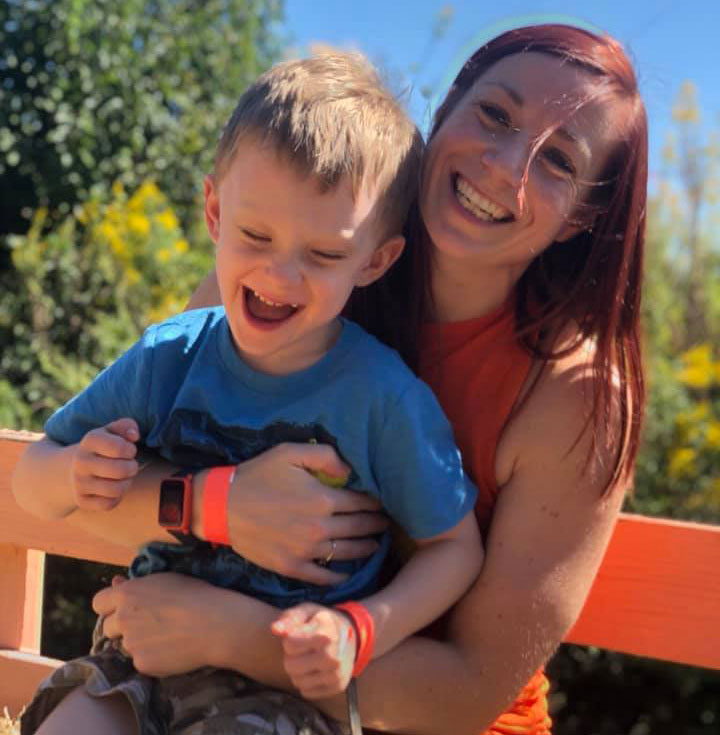Education | July 20, 2022
What It’s Like To Raise A Child With A Disability
Being the parent of a child with special needs is exhausting and isolating. It’s also rewarding and filled with moments of pure happiness and triumph. I don’t believe that “God only gives special kids to special people,” but I do believe that you have to develop a special set of skills to thrive (and some days, just survive) as a special needs parent. The most important of these skills are patience, a thick skin, a sense of humor, and the ability to find the bright side of any situation.
But let me back up a bit. Here at ASI, most people know me as a senior web designer on the Creative Labs team. I’m also a softball mom, the coordinator of a youth running program, and a parent to a wonderful little boy with cerebral palsy.
My son Mickey was born 14 weeks early at just 25 weeks gestation. He weighed 1lb. 14oz. (less than a bottle of Gatorade) and spent 117 days in the NICU before he was able to come home with us. So, from the start, we knew we would have our hands full with a million unknowns.

Mickey, who is now eight years old, began receiving early intervention (home-based therapy services) shortly after we brought him home from the hospital. He was about two years old when we got the official diagnosis of cerebral palsy. At the time, all the diagnosis meant was that it would be easier for us to get him the services and equipment he needed. And that’s still all the diagnosis means to me. The diagnosis on paper doesn’t say anything about the incredibly bright, hard-working, tough little boy that he is. It doesn’t give any indication of how hard he’s had to fight and how much he’s overcome so far in his short life.
This world was not built for people with different abilities, but it is getting better. I think society as a whole has come a long way in accepting “differently abled” people. Yes, we do get stares when we’re out shopping and Mickey is walking with his gait trainer, but many smiles too. Mickey is integrated with his typically developing peers at school, and at home we hold him to the same standards and expectations as his younger sister. Of course we have to constantly adapt to accommodate his needs, but we try to give him as much of a “normal” life as possible.

It’s easy for a parent of a child with special needs to feel isolated, and there are many challenges that are unique to us. For example, I have to juggle more doctor and therapist appointments than the average mom; I’ve also added some skills to my resume including inserting a feeding tube through a sleeping baby’s nose and giving injections of seizure medication; and don’t even get me started on the stress of Individualized Educational Program (IEP) meetings. One of the most disheartening aspects of parenting a child with special needs is watching them struggle with things that come “easy” to other kids, or watching them miss one milestone after another. It’s so easy to get caught up in the comparison game. I have to constantly remind myself that every child is on their own path, and learns at their own pace, in their own way.
But one unexpected blessing of being Mickey’s mom is that I have been able to witness so much goodness in this world. It warms my heart to watch Mickey make new friends and interact with his peers; I’ve been able to connect with some incredible therapists and advocates who work tirelessly for people of all abilities; and I have learned to celebrate even the smallest achievements and not take anything for granted.

The simplest way to support someone who is raising a child with special needs is to just be there for them. Listen to their concerns, their fears and their struggles. Parenting a child with special needs can be lonely, so make sure you include them in your plans (even if they tend to frequently decline – we have to deal with the unexpected, so plans often change at the last minute). Let them know they’re doing a great job. Offer a shoulder to cry on when they’ve reached their breaking point. Get to know their children and their unique abilities and love them like your own!
Lastly, and most importantly, spread awareness and acceptance in your own home. Teach your own children to be tolerant and accepting of everyone, regardless of ability. Here are some tips for talking to children about disabilities/differences in general:
- Instead of telling kids not to stare at people with different abilities, encourage them to say hi!
- Kids will have questions and that’s okay. We usually don’t mind answering and it’s a great teaching moment for everyone.
- People with special needs want the same things as any other person: to be included, to have friends, and to be loved.
- And lastly, don’t underestimate them! People with disabilities are amazingly strong and resilient. They may do some things a little differently, but if there’s something they want, they’ll find a way to make it work.

